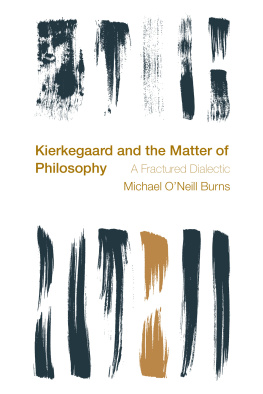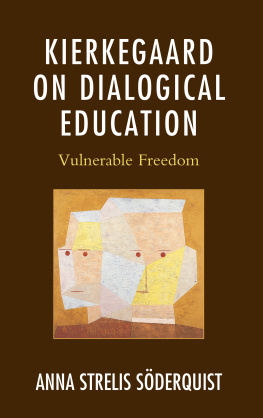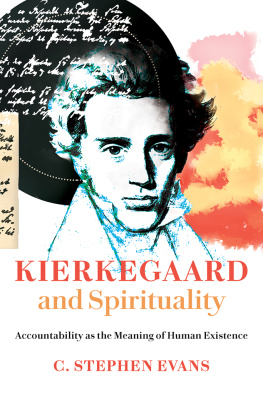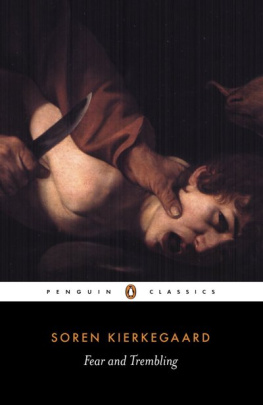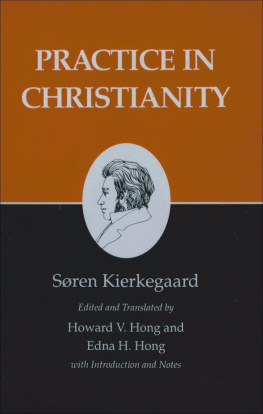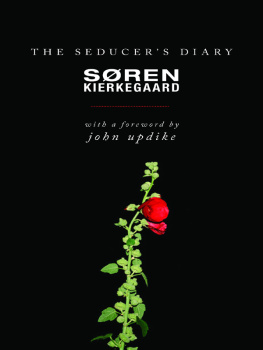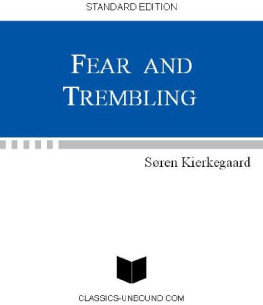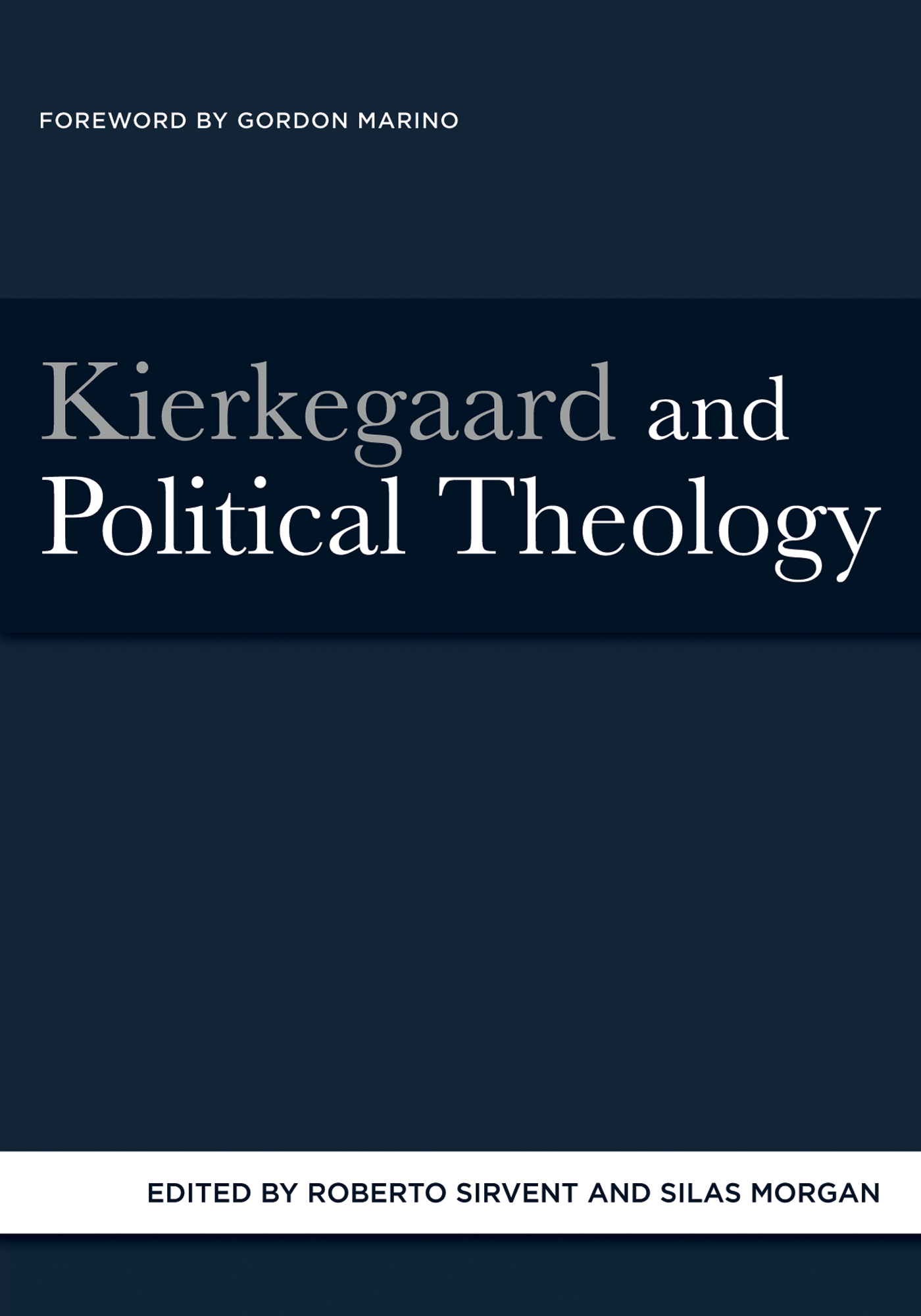Kierkegaard and Political Theology
edited by Roberto Sirvent and Silas Morgan
foreword by Gordon Marino
For Amy Laura Hall and Kyle Roberts,
who first taught us to read Kierkegaard
The most one person can do for another is to unsettle him.
Sren Kierkegaard, Concluding Unscientific Postscript
I believe in making a difference by thinking little thoughts and sharing them widely. I seek to provoke, annoy, bother, irritate, and amuse; I am chasing small projects, micropolitics, hunches, whims, fancies.
Jack Halberstam, The Queer Art of Failure
And this way, which is Christ, this narrow way, as it goes on, becomes narrower and narrower to the end, to death.
Sren Kierkegaard, For Self-Examination
Contributors
Editors
Roberto Sirvent , Associate Professor of Political and Social Ethics at Hope International University in Fullerton, CA, USA.
Silas Morgan , Hamline University, St. Paul, MN, USA.
Contributors (in order of appearance)
Gordon Marino , Professor of Philosophy, Director of the Hong Kierkegaard Library at St. Olaf College, Northfield, MN, USA.
Saitya Brata Das , Assistant Professor at the Centre for English Studies, School of Language, Literature and Culture Studies at Jawaharlal Nehru University, India.
Anthony Rudd , Associate Professor of Philosophy, St. Olaf College, MN, USA.
David Lappano , Centre for Christian Studies, Winnipeg, Canada
Stephen Backhouse , Lecturer in Social and Political Theology, St Mellitus College, London, UK.
Heather C. Ohaneson , Assistant Professor of Philosophy and Religious Studies, Faculty Fellow in the William Penn Honors Program, George Fox University, USA.
Jamie Aroosi , Visiting Assistant Professor, Yeshiva University, New York, NY, USA.
Natalia Marandiuc , Assistant Professor of Christian Theology, Perkins School of Theology, Southern Methodist University, Dallas, TX, USA.
Jennifer Elisa Veninga , Associate Professor of Religious and Theological Studies at St. Edward's University in Austin, TX, USA.
Vincent Lloyd , Associate Professor of Theology and Religious Studies at Villanova University, Villanova, PA, USA.
James D. Reid , Associate Professor of Philosophy, the Metropolitan State University of Denver, Colorado, USA.
Rick Anthony Furtak , Associate Professor of Philosophy at Colorado College, Colorado, USA.
Kyle Roberts , Schilling Professor of Public Theology and Church and Economic Life, United Theological Seminary of the Twin Cities, New Brighton, MN, USA.
Abrahim H. Khan , Professor in Faculty of Theology, Trinity College, University of Toronto, Toronto, CA.
Helene Russell , Associate Professor of Theology, Christian Theological Seminary, Indianapolis, IN, USA.
Dana Lloyd , Ph.D. candidate, the Department of Religion, Syracuse University, Syracuse, NY, USA.
Mary-Jane Rubenstein , Professor of Religion and Feminist, Gender and Sexuality Studies, Wesleyan University, Middletown, CT, USA.
Mariana Alessandri , Assistant Professor of Philosophy at the University of Texas Rio Grande Valley, Edinburg, Texas, USA.
Jason A. Mahn , Associate Professor of Religion and Director of the Presidential Center for Faith and Learning at Augustana College, Rock Island, IL, USA.
Howard Pickett , Assistant Professor of Ethics and Poverty Studies, and Director of the Shepherd Program for the Interdisciplinary Study of Poverty and Human Capability at Washington and Lee University, Lexington, VA, USA.
Duncan Reyburn , Senior Lecturer, Faculty of the Humanities, University of Pretoria, South Africa.
Bartholomew Ryan , Researcher and Coordinator of CultureLab, Nova Institute of Philosophy (IFILNOVA), New University of Lisbon, Portugal.
Burkhard Conrad, OPL, Diocesan Liaison Officer for Universities, University Chaplaincies, and Adult Education, Archdiocese of Hamburg, Hamburg, Germany.
Matthew D. Kirkpatrick , Lecturer in Ethics and Doctrine at Wycliffe Hall, University of Oxford, UK.
Kara N. Slade , Theologian in Residence and Associate Chaplain at the Episcopal Church in Princeton, Associate Rector for Formation, Trinity Parish, Princeton, NJ, USA.
Foreword
Gordon Marino
I used to complain that those of us who became enamored of Kierkegaard were wrongly inclined to try and find everything in him. Back then, I would even jab, why not a Kierkegaardian physics or economics or political theory? After all, there is little that Kierkegaard does not touch upon in his sprawling authorship. You can find almost everything and also almost anything you want in him. For me, it has always been a matter of where the accents fall and I think the major emphasis in his writings is clearly on the question of what it means to have faith.
Although he lived during a period of volcanic political upheaval, Kierkegaard was all but indifferent to the political sphere, and what he did have to say did not exactly invite a political theology. Recently, the Kierkegaard scholar Matas Tapia reminded me of a letter Kierkegaard wrote to his walking partner, Conferentsraad Kolderup-Rosenvinge. The letter was penned in August of 1848 , the very year in which there was a peaceful transition to a constitutional monarchy in Denmark. Kierkegaards friend complains that on a recent promenade they did not get around to talking about politics. Kierkegaard responds:
No, politics is not for me. To follow politics, even if only domestic politics, is now days an impossibility, for me, at any rate. Whenever anything happens very quicklywell, then one attempts to follow it; whenever anything goes very slowlywell then one attempts to put up with the boredom of following it. But whenever something fluctuates back and forth, up and down and down and up, and then comes to a halt, and around and up and down and back again, then I am incapable of voluntarily following.... That is why I keep away from politics.
During the same month, in another missive to the Conferentsraad, Kierkegaard commented, Any purely political movement... is a vortex, a vortex that cannot be stopped except by religion.
For Kierkegaard, politics was basically synonymous with the theme of equality. As we know, the Danish firebrand was able to live very comfortably off of his large inheritance. He worked tirelessly, perhaps even to the point of death; but save for a very brief interval as a Latin instructor, he never had to bear the strain of having to work for someone else. Even though he recognizes and in his Journals wrestles with himself about the frisson between his understanding of a Christian existence and his highly privileged life, I have to confess that I have been inclined to hold his inborn wealth against him. Imagine, in his Works of Love , he offers the loving counsel that the poor and hungry should be merciful to the fat cats by not making them feel guilty at their feasts! Perhaps it is an instance of the causal fallacy, but it is no wonder our well-heeled magister did not experience any urgency about the necessity of implementing a more equal distribution of wealth, rights, and opportunities.
Those who pull faces and take offense at Kierkegaards pietistic Christianity can try to secularize Kierkegaard to their hearts content; nevertheless, it is clear that from near the beginning to the end of his life, he believed that the only truly decisive either/or was whether or not you were faithful to the Lord and the idea that you are a self, a spirit with an eternal element.


